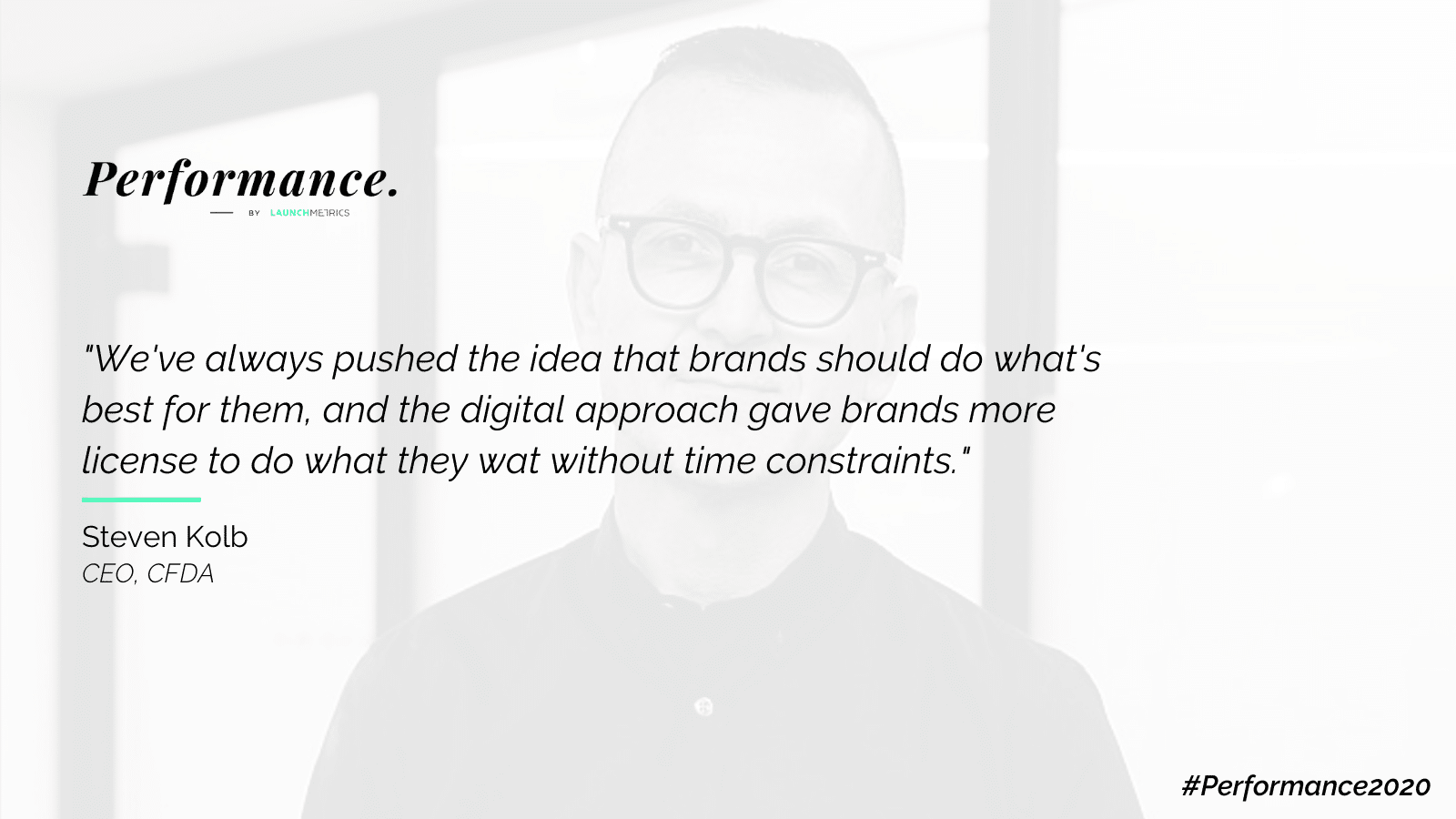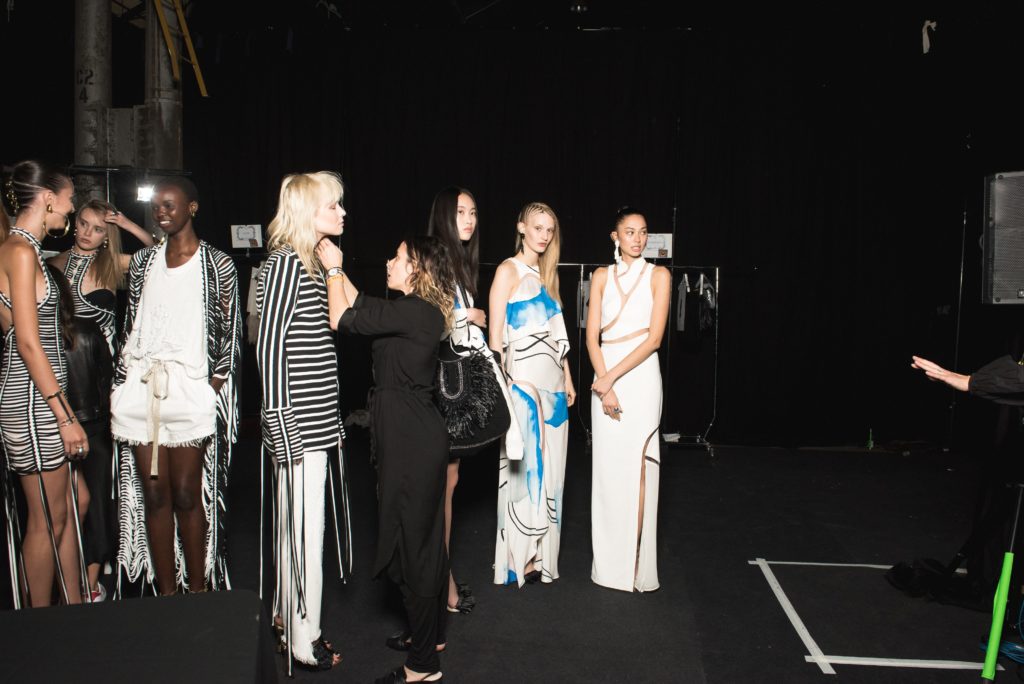Last year, many fashion fans questioned what the future of the industry looked like, specifically when it came to whether fashion weeks would continue as normal, whether they would still see their favorite influencers sitting front row or whether brands would go fully digital. Of course, the pandemic forced the industry to respond and overcome, and fashion week still went ahead albeit in a slightly evolved form. So, what does this mean for fashion week this year? Brands and boards have largely adapted to the challenges the pandemic has thrown at the industry and now work in line with the rules and regulations that are in place globally. But, does it mean that fashion week is ‘back to normal’, or is the industry still operating in a hybrid format? In this article, we run through everything you need to know about fashion week in 2021, from show dates to digitization and what the future looks like according to the leaders of the 4 main fashion weeks (New York, London, Paris, and Milan).
Fashion Week 2021: Dates, Digitization and the Future According to Industry Leaders
The Schedule This Year
Because of the industry-wide shakeup, the traditional fashion week dates were slightly altered, with some brands veering away from the set schedule altogether, announcing they would be showing off-schedule for the foreseeable future. As it stands, the fashion week dates for this year are as follows:
Fall/Winter 21′
Paris Haute Couture Week FW21: January 25-28
New York Fashion Week FW21: February 13-18
London Fashion Week FW21: February 19-23
Milan Fashion Week FW21: February 19-24
Paris Fashion Week FW21: March 1-9
Spring/Summer 22′
Paris Haute Couture Week SS22: July 4-8
New York Fashion Week SS22: TBC
London Fashion Week SS22: September 17-21
Milan Fashion Week SS22: TBC
Paris Fashion Week SS22: September 27-October 5
The Evolution of Fashion Week in 2021
Whilst the fashion week dates are fairly typical, the structure of the shows is anything but, with some councils choosing to opt for a slightly different format in 2021 and going forward. Let’s take a look at the trends emerging this year.
Genderless Fashion Weeks
When asked about the show schedule this year, The British Fashion Council announced that they would be “officially merging their menswear collections into their womenswear shows, creating a genderless fashion week.” This is set to last throughout the FW21 and SS22 seasons, and will also aim to tackle the issue of sustainability within fashion, by reducing the need to travel and present collections so many times a year. The diversion from the typical show schedule was also discussed by the leaders of the four leading Fashion Weeks, at our recent Performance Summit, with Carlo Capasa, the Chairman of the CNMI stating that they would stick with their schedule and adapt show formats only from a digital/physical perspective – he did note that brands were, of course, welcome to present collections in a ‘genderless’ way, leaving this up to the designers themselves.
View this post on Instagram
Digitization is here to stay
The most asked question when talking about the fate of fashion week this year? Whether or not there will be in-person shows, or if fashion week will stay digital. For Carlo and Milan Fashion Week, this is entirely dependent on the pandemic, as he noted “if it is very difficult we will lean into the digital, if not, we will showcase more physical shows. We will adapt the Fashion Week according to the pandemic situation.” During Men’s Fashion Week many brands have opted to shift their previously planned physical shows into virtual formats, which will likely be a sustained trend as much of the world remains in lockdown.
Last season, The Fédération de la Haute Couture et de la Mode hosted a fully online environment during fashion week, with the Executive President of the Foundation, Pascal Morand, noting the industry’s acceleration to adopt digitization in “what would have happened over the course of years, in a matter of weeks.” The virtual environment showcased a mixed medium of ‘live’ shows and pre-recorded presentation lookbooks, and this digital atmosphere has also been carried over into the Haute Couture Paris Fashion Week this January. Pascal noted the opportunities for brands to be more “creative, and emotional” and tap into a wider range of resources when presenting showcases via video in a storytelling format.
It’s likely that Paris Fashion Week will be similar to the Menswear presentation, with shows taking place digitally or without an in-person audience. This however can be lucrative for brands, as Chanel made headlines late last year by presenting their Métiers D’Art show to actress Kristen Stewart alone, when French Covid rules meant that only one VIP guest was permitted, as opposed to the 200 that were planned.

New York Fashion Week is also rumored to be mostly virtual, which Steven Kolb, the CEO of The CFDA noted allowed more flexibility for brands: “We’ve always pushed the idea that brands should do what’s best for them, and the digital approach gave brands more license to do what they want without time constraints.”
Dates are undetermined
A hot topic across the past year has been whether the traditional dates of Fashion Weeks would remain, or whether more brands would decide to show off-schedule. From Gucci to Off-White, a plethora of houses last year announced that they wouldn’t be sticking to the traditional schedule, with some choosing to go seasonless in order to reignite excitement and exclusivity, but is this reflective of the future of the industry?
The leaders had mixed responses but agreed it was likely that a schedule would still stay in place. Pascal Morand noted that it is their job to “stick to the principle and have a consistent framework and landscape which works – but brands can choose to be flexible outside of that.”
If you would like to learn more and hear the full conversation between the leaders of the four main fashion weeks, watch the session here!
